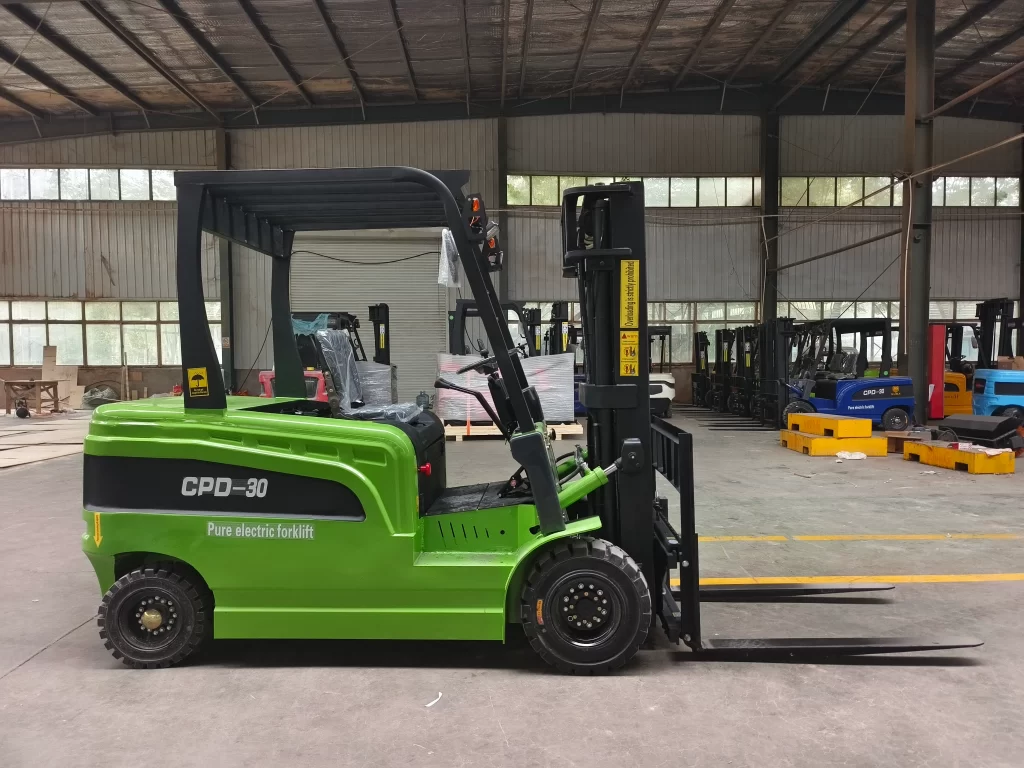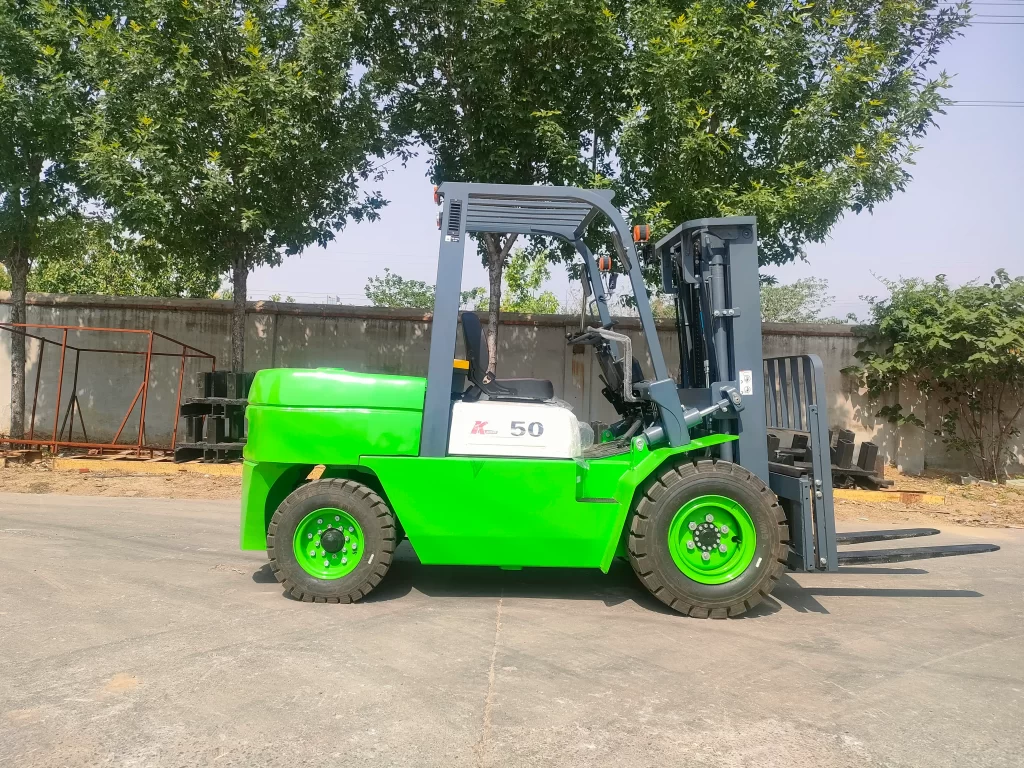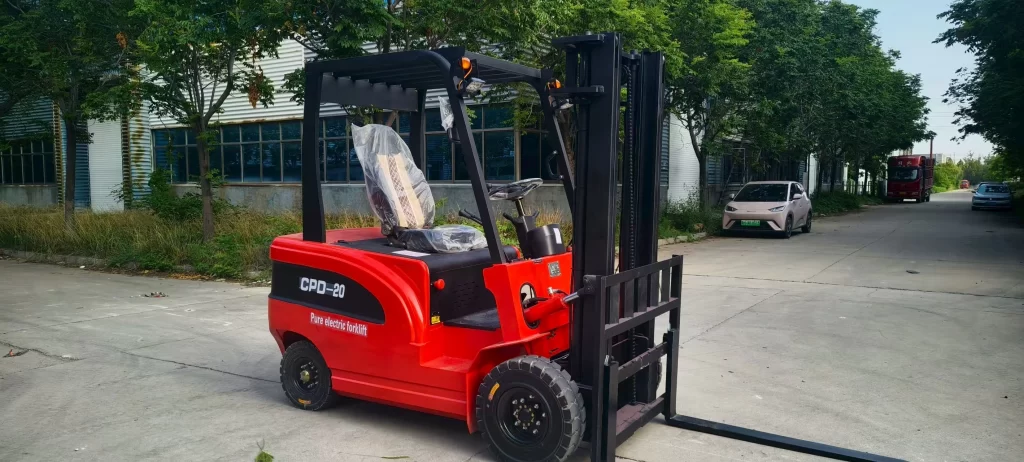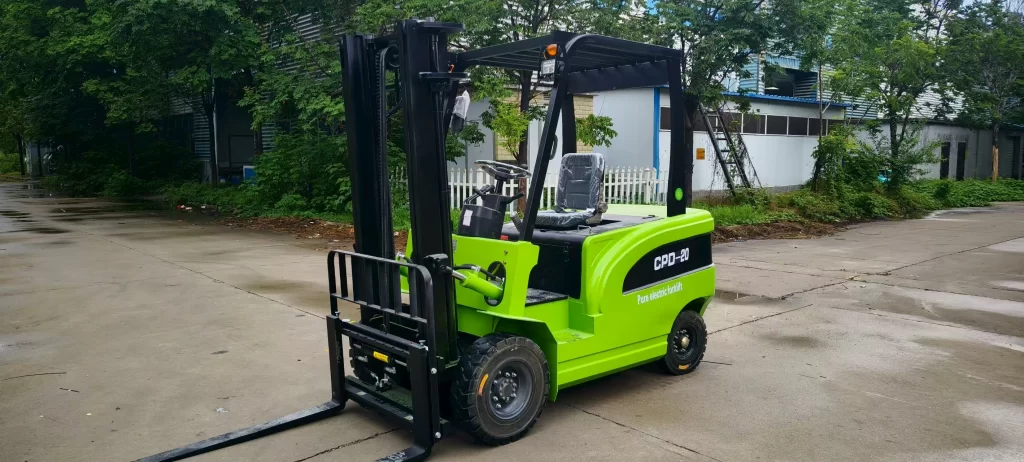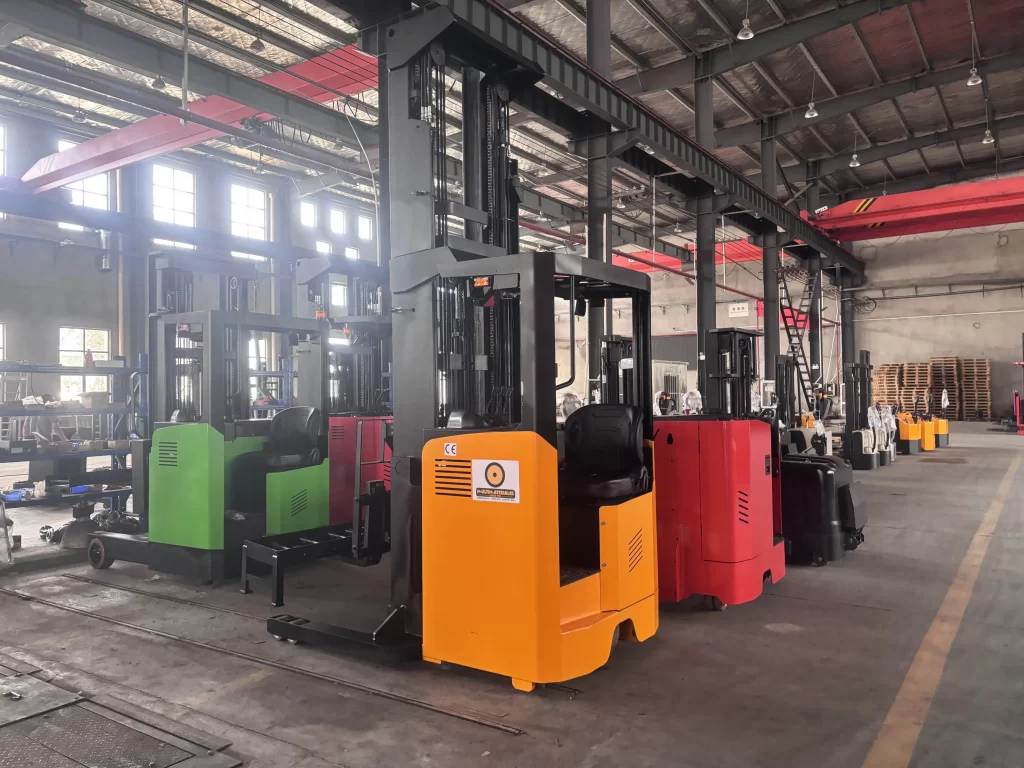How to buy the best electric forklift?
What is an electric forklift?
A fully electric forklift is an industrial vehicle powered by batteries, utilizing an electric drive system to perform loading/unloading, stacking, and short-distance transportation.
Its types encompass over twenty specialized models, including four-way forklifts, counterbalanced forklifts, reach trucks, and electric pallet truck jacks. Steering, acceleration, and hydraulic operations are controlled via an electrical signal system. Featuring low noise and zero emissions, they are widely used in logistics and warehousing.
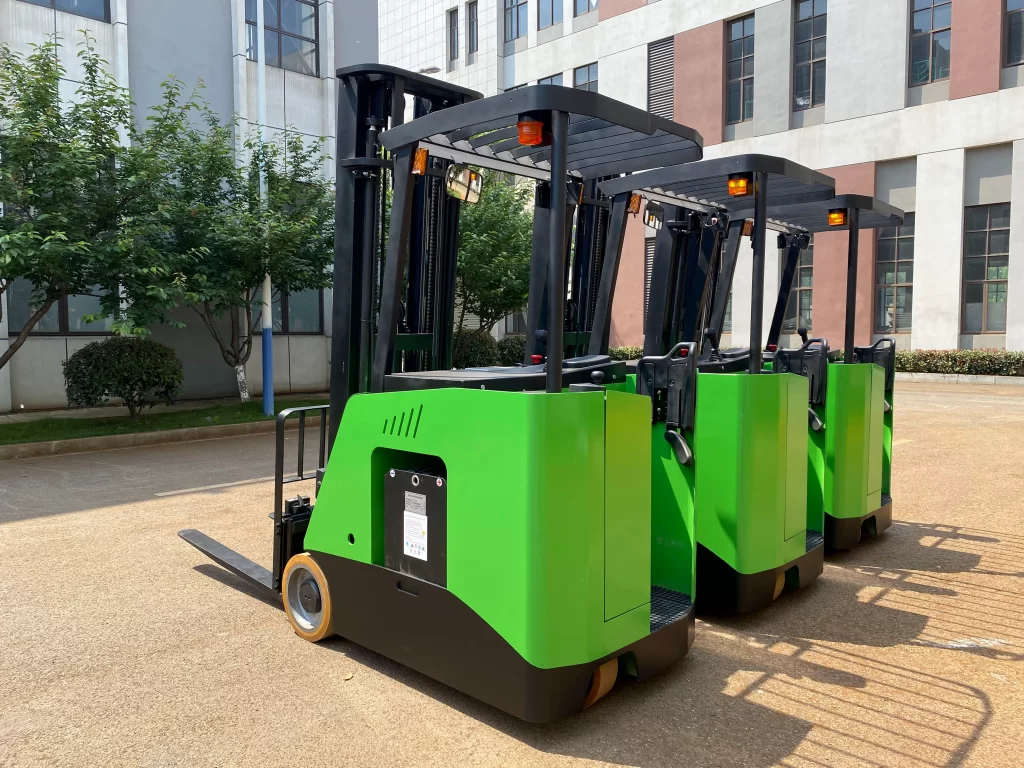
Main Types of Electric Forklifts
- Counterbalanced Forklift: Characterized by counterweights positioned at the rear and chassis. Counterweights can be categorized as cement, composite, or cast iron. Cast iron counterweights offer the best stability, corrosion resistance, and highest volumetric density, though they come at a higher cost.
- Electric Stacker: A compact industrial handling vehicle with a load capacity of approximately 1-3 tons. Lift height can be customized, though load capacity is limited by motor size and stability. Pricing remains relatively consistent.
- Reach Truck: Also known as an electric retractable forklift, this advanced warehouse handling vehicle features a mast and forks that extend forward and backward. It is also classified as a narrow aisle forklift.
These represent three typical electric forklift types for your selection. Electric counterbalance forklifts offer high driving comfort alongside strong load and lifting capabilities, with capacities ranging from 1 to 10 tons and lifting heights from 3 to 8 meters. Their pricing is moderate. Reach trucks command higher prices and serve as essential lifting tools in high-density warehouses; they are generally not recommended unless strict turning radius requirements exist.
Compact electric forklifts achieve tighter turning radii by shortening the vehicle body or adopting a three-wheel configuration. Below are two small electric forklift models for your reference.
Battery Types for Electric Forklifts
Electric forklifts primarily utilize three battery types: lead-acid batteries, lithium batteries, and hybrid batteries. Lead-acid batteries offer stable performance with moderate discharge capacity. Their substantial weight can serve as a counterbalance for electric forklifts. Recyclable lead-acid batteries are environmentally friendly. Lithium batteries include ternary lithium and lithium iron phosphate variants. Lithium iron phosphate batteries are commonly used for their stability and wide operating temperature range (-20°C to 80°C), making them a reliable choice. Hybrid batteries combine different types, such as lead-acid and phosphate batteries, achieving high energy density and stability by leveraging the advantages of both. However, they come at a higher cost.
Top Electric Forklift Brands
Leading electric forklift brands include Toyota, Crown, Hyster, and Senchi. You can explore well-known brands locally, but branded electric forklifts are generally expensive, making them less suitable for customers with limited budgets. They also typically do not support customization. As an alternative, we recommend purchasing electric forklifts from China. This approach not only saves significant costs but also allows for customization of your electric forklift. Feel free to consult us—we are a professional forklift manufacturer dedicated to providing cost-effective forklifts and superior material handling equipment. We support customization options, including batteries, forklift functions, motors, colors, and logos.
Electric forklift vs diesel forklift, we would recommend the electric forklift, as it has so many advantages.

Advantages of Electric Forklifts vs. Diesel Forklifts
Cost Advantage: Within the 1T-5T load capacity range, electric forklifts have lower initial purchase costs than diesel models. Additionally, electricity costs are generally lower than diesel fuel, resulting in substantial long-term savings on fuel expenses.
Maintenance Advantage: Electric forklifts require minimal maintenance, eliminating the need for regular oil filter and air filter replacements. Their maintenance costs are comparatively lower than diesel forklifts.
Stability and Responsiveness: Electric forklifts utilize electric motors to drive hydraulic systems, allowing gradual current adjustment to enhance lifting capacity and travel speed. Their DC power supply enables precise control and responsiveness. In contrast, internal combustion forklifts rely on fuel-based power sources, which can be unstable, leading to complex operation and potential instability.
Environmental Friendliness: Electric forklifts emit no exhaust fumes, making them more environmentally friendly than diesel models. They also produce minimal noise pollution. As a professional electric forklift manufacturer, we utilize brushless motors, which offer extended lifespan and lower maintenance costs.
Versatile Applications: Electric forklifts are suitable for both indoor and outdoor use, gaining popularity for their low noise and zero emissions. Additionally, they are increasingly replacing diesel forklifts in facilities storing flammable and explosive materials, underscoring their growing importance.
